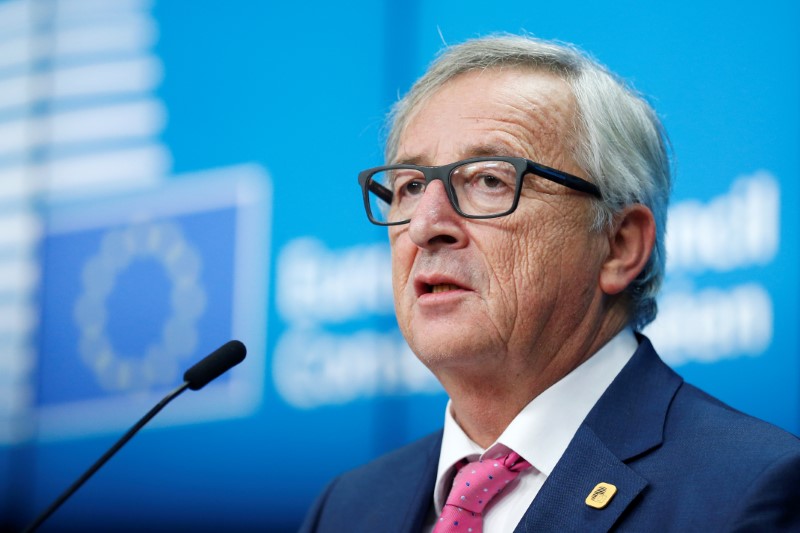By Francesco Guarascio
BRUSSELS (Reuters) - European Commission President Jean-Claude Juncker faces renewed claims that he impeded EU moves against corporate tax avoidance when Luxembourg's prime minister, casting a shadow over his political future as a tussle over the bloc's top jobs looms.
Juncker has faced criticism from lawmakers and advocacy groups in past months over tax deals during his 18-year tenure as Luxembourg premier, including favourable arrangements for multinationals including Amazon (NASDAQ:AMZN) and Fiat.
Since Juncker took over the top job in Brussels in November 2014, the Commission has launched investigations into those deals.
Citing leaks of German diplomats' internal communications, Britain's Guardian newspaper said on Sunday that Juncker had spent years blocking EU attempts to tackle corporate tax avoidance - prompting euro lawmakers to call on him to appear before an EU parliamentary committee of inquiry.
Asked on Friday about the allegations, a commission spokesman said Juncker had launched "an unprecedented wave of active fight against tax avoidance" and been "fully transparent" on tax issues while campaigning for the presidency and during his mandate in Brussels.
Gianni Pittella, who heads the centre-left grouping in the European Parliament and is running for presidency of the legislature at elections planned this month, said on Friday Juncker should clarify his position at the inquiry and share all relevant documents.
"European citizens, the taxpayers, have the right to know the truth about past conduct," said Pittella said.
The leftist and green groupings in Parliament, which together account for 102 of the 751 seats, have also urged Juncker to appear before the committee, and the leftists have called on him to step down as commission president.
Asked if Juncker would attend the inquiry, the Commission spokesman said: "The President is always ready to cooperate with Parliament... He has nothing to hide."
As Commission president, Juncker has pushed ahead ambitious reforms of EU tax rules to curb tax avoidance - which, unlike tax evasion, is not illegal.
But with the backing of all 28 EU governments needed for changes to tax legislation, progress has been slow.
The parliamentary presidency election may also have a bearing on Juncker's future.
The centre-right grouping, the largest in the legislature, is posed to win the vote, a result that would give the conservatives the top three positions in the EU.
They already hold the Commission presidency with Juncker and the European Council presidency with Donald Tusk.
But the centre-left, the second largest grouping which recently ended a decade-long alliance with the conservatives, wants one of the key posts after the outgoing parliamentary president, socialist Martin Schulz, steps down.
